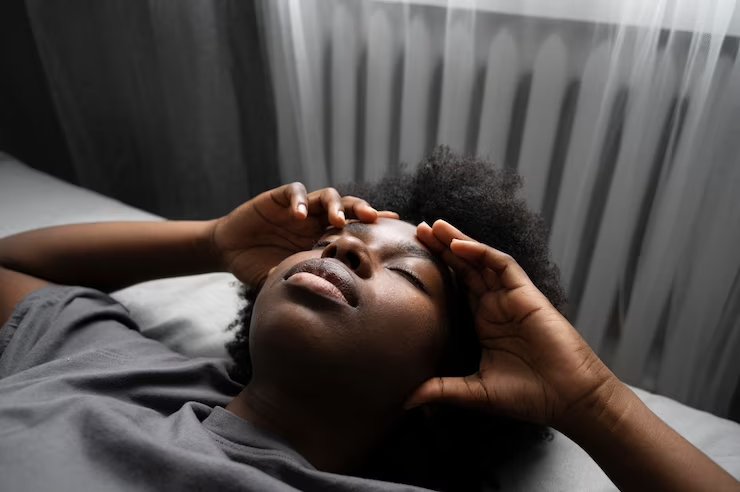Anxiety is a prevalent mental health condition that affects many individuals in South Africa. One of the areas that anxiety often disrupts is sleep. The racing thoughts, restlessness, and heightened arousal associated with anxiety can make it difficult for individuals to fall asleep and maintain a restful sleep throughout the night. In this article, we will explore strategies to promote healthy sleep patterns for South African individuals with anxiety, helping them attain the rest they need for their overall well-being.
- Establish a Consistent Bedtime Routine: Creating a consistent bedtime routine can signal to the body and mind that it’s time to relax and prepare for sleep. Engage in activities that promote relaxation, such as reading a book, taking a warm bath, practicing gentle stretches, or engaging in deep breathing exercises. Consistency and predictability help establish a sense of calm and promote a restful sleep environment.
- Create a Sleep-Conducive Environment: Ensure that your bedroom is a haven for sleep. Keep the room cool, dark, and quiet, and remove any distractions that may trigger anxiety or disrupt sleep. Consider using blackout curtains, earplugs, or white noise machines to create a soothing environment. Invest in a comfortable mattress, pillows, and bedding to enhance physical comfort and promote relaxation.
- Manage Stimulants: Be mindful of your intake of stimulants, such as caffeine and nicotine, especially in the afternoon and evening. These substances can exacerbate anxiety symptoms and interfere with sleep quality. Opt for herbal teas or decaffeinated options instead, and consider limiting or avoiding nicotine altogether.
- Practice Relaxation Techniques: Incorporate relaxation techniques into your daily routine to help manage anxiety and promote better sleep. Deep breathing exercises, progressive muscle relaxation, mindfulness meditation, and guided imagery can help calm the mind, relax the body, and reduce anxiety levels before bedtime. Experiment with different techniques to find what works best for you.
- Journaling: Consider keeping a journal by your bedside to jot down any racing thoughts, worries, or concerns before sleep. This practice can help offload anxieties from your mind and provide a sense of closure for the day. Writing down positive affirmations or things you are grateful for can also shift your focus towards a more positive mindset, promoting better sleep.
- Regular Exercise: Engaging in regular physical activity can help alleviate anxiety symptoms and improve sleep quality. Find activities that you enjoy, such as walking, yoga, or dancing, and aim for at least 30 minutes of exercise most days of the week. However, avoid intense exercise close to bedtime, as it may stimulate your body and make it more difficult to wind down.
- Cognitive Behavioral Therapy for Anxiety (CBT): Consider seeking professional help from a therapist trained in cognitive behavioral therapy. CBT can provide effective tools and techniques to manage anxiety symptoms and promote healthy sleep patterns. It focuses on identifying and challenging negative thought patterns and implementing behavioral strategies to reduce anxiety and improve sleep.
- Limit Screen Time: The blue light emitted by electronic devices can interfere with sleep quality and exacerbate anxiety symptoms. Minimize screen time, especially in the evening hours leading up to bedtime. Instead, engage in relaxing activities such as reading a book, listening to calming music, or practicing gentle stretching.
- Seek Support: Don’t hesitate to seek support from loved ones, support groups, or mental health professionals. Talking about your anxiety can help alleviate its impact on your sleep and overall well-being. A trusted friend, family member, or therapist can offer guidance, understanding, and additional strategies to manage anxiety and improve sleep quality.
Remember, promoting healthy sleep patterns for individuals with anxiety is a personalized journey. It may take time to find the strategies that work best for you. Be patient and kind to yourself as you explore different techniques and make adjustments along the way. With consistency and a proactive approach, you can establish healthy sleep habits and reduce the impact of anxiety on your sleep and daily life.










